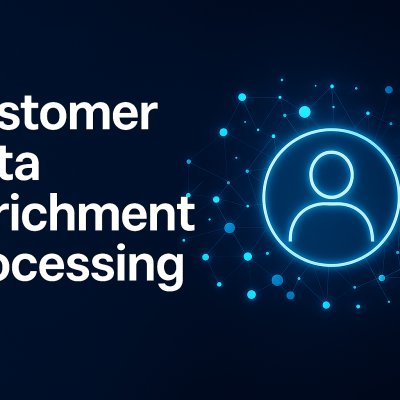In today’s fast-paced, cashless economy, offering flexible payment options is essential for businesses of all sizes. Accepting credit and debit card payments not only improves customer satisfaction but also enhances cash flow, making it easier to manage day-to-day operations. In this guide, we’ll walk through everything you need to know about credit and debit payment processing, from how it works to common questions merchants often ask.
What is Credit and Debit Payment Processing?
Credit and debit payment processing is the system that enables businesses to accept payments from customers via card transactions. Here’s a simplified breakdown of how it works:
- Customer Pays: The customer presents their credit or debit card to pay for goods or services, either in person or online.
- Authorization: The payment terminal (physical or digital) sends the card details to a payment processor to confirm if the funds are available.
- Transaction Approval: The processor communicates with the card issuer (e.g., Visa, Mastercard, American Express) to approve or decline the transaction.
- Settlement: Once approved, the payment is processed, and funds are transferred from the customer’s bank to the merchant’s account.
- Deposit: The merchant receives the funds, usually within 1-3 business days.
For merchants, this process happens in a matter of seconds, providing a seamless experience for the customer.
Why is Credit and Debit Payment Processing Important for Merchants?
Credit and debit card payments are the backbone of modern commerce, offering numerous advantages:
- Convenience: Customers expect businesses to accept card payments, both online and in person.
- Faster Transactions: Card payments are processed instantly, speeding up the checkout process.
- Improved Cash Flow: Payments are deposited directly into your account, ensuring a smooth cash flow for your business.
- Global Reach: By accepting credit and debit payments, you can cater to international customers with ease.
- Security: Card payments are highly secure, with protections in place for both businesses and consumers.
Common Questions Merchants Have About Payment Processing
To help merchants better understand payment processing, here are some frequently asked questions:
1. What Types of Credit and Debit Cards Can I Accept?
Merchants using OpulencePay can accept all major credit and debit cards, including Visa, Mastercard, Discover, and American Express. Additionally, OpulencePay supports contactless payments like Apple Pay, Google Pay, and other mobile wallets.
2. How Long Does It Take to Get Paid?
The time it takes for funds to reach your account varies depending on the payment processor and bank, but typically, you can expect deposits within 1-3 business days. OpulencePay ensures a fast and reliable payout schedule.
3. What Fees Are Involved in Payment Processing?
The cost of processing payments depends on several factors, such as the type of card used (credit or debit), the transaction amount, and your payment processor. Typically, fees include:
- Interchange Fees: These are paid to the card-issuing banks.
- Processing Fees: These go to the payment processor for handling the transaction.
- Assessment Fees: These are charged by the card networks (Visa, Mastercard, etc.).
It’s essential to review these fees with your payment processor to ensure clarity on pricing.
Benefits of Using OpulencePay for Credit and Debit Card Processing
OpulencePay offers several advantages to merchants who need reliable and efficient payment processing solutions:
- Seamless Integration: Whether you’re running an online store or a physical location, OpulencePay’s platform integrates easily with a wide range of POS systems and eCommerce platforms.
- Advanced Security: With built-in encryption and fraud detection, OpulencePay ensures that every transaction is secure, protecting both your business and your customers.
- 24/7 Support: Have a question? Our dedicated support team is available around the clock to assist with any payment issues or concerns.
- Flexible Payment Options: Accept payments via credit cards, debit cards, contactless payments, and even eChecks for maximum flexibility.
The Payment Processing Journey: A Step-by-Step Breakdown
Let’s break down the process of payment processing in a more detailed way to give merchants a clearer picture:
- The Customer Swipes, Inserts, or Taps Their Card
If it’s a physical transaction, the customer will either swipe the magnetic stripe, insert the chip, or tap their contactless card or phone at the terminal. For online transactions, the customer inputs their card information into the payment form. - Transaction Data is Sent to the Processor
The payment terminal or gateway sends the transaction details to the payment processor, which begins the authorization process. - The Payment Processor Requests Authorization
The payment processor communicates with the card issuer (the bank that provided the card) to ensure that the customer has sufficient funds or credit available. - The Bank Approves or Declines the Transaction
If there are sufficient funds or credit, the card issuer approves the transaction. Otherwise, it will decline the payment, and the merchant will be notified.
Once approved, the funds are transferred from the customer’s account to the merchant’s account, minus any applicable fees.
Key Factors to Consider When Choosing a Payment Processor
As a business owner, it’s essential to evaluate your options when choosing a payment processor. Here are a few things to keep in mind:
- Fees: Understand the fee structure and how it impacts your bottom line. Be sure to compare rates between processors.
- Security: Make sure the processor offers PCI compliance and robust encryption to protect sensitive data.
- Speed of Payment: How quickly will funds be deposited into your account? Choose a processor that offers reliable and fast payouts.
- Support: Ensure that you have access to 24/7 customer support in case of issues.
- Scalability: If you plan to grow, choose a payment processor that can scale with your business, whether you need more features or additional payment options.
Conclusion: Why Payment Processing is Essential for Modern Business
Credit and debit card processing is no longer a luxury—it’s a necessity for today’s businesses. By partnering with a trusted processor like OpulencePay, you’ll ensure that your customers have a seamless and secure payment experience, both online and in person. From quicker transactions to enhanced security, accepting card payments is a smart move for any business looking to grow.




